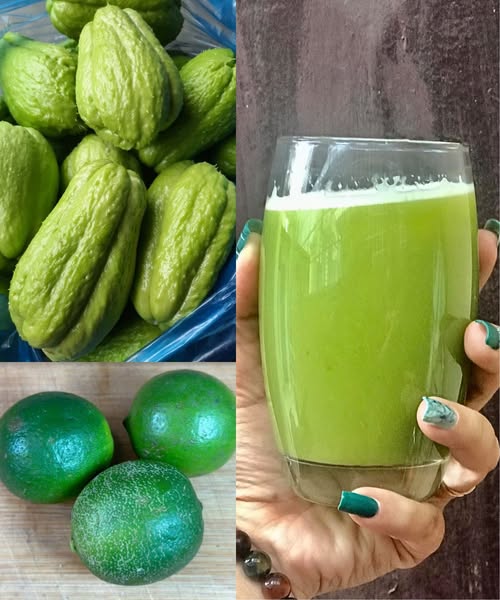Introduction: The Underrated Superfood in Your Kitchen

Sweet potatoes have long sat humbly on dinner plates, often overshadowed by their starchier white potato cousins. But what if we told you that sweet potatoes are nutritional powerhouses wrapped in vibrant orange skins? Whether roasted, mashed, baked, or turned into fries, sweet potatoes aren’t just delicious — they’re secretly working overtime to improve your health.
In today’s fast-paced world, people want power-packed foods that deliver results. Sweet potatoes fit the bill perfectly. In this blog post, we’re pulling back the curtain to reveal 11 mind-blowing sweet potato secrets you likely never knew — each one backed by facts and real impact.
1. Sweet Potatoes Can Help Regulate Blood Sugar (Even for Diabetics!)
Despite their name, sweet potatoes won’t spike your blood sugar like you’d expect. Rich in fiber and complex carbohydrates, they have a low glycemic index (GI) — especially when boiled.
📊 Stat Alert: Boiled sweet potatoes score around 44 on the GI scale, compared to a baked white potato at 111.
Why it matters: Diabetics and those watching their sugar levels can eat sweet potatoes without fear — just stick to boiling instead of baking or frying for maximum benefit.
2. They’re Richer in Beta-Carotene Than Carrots
Yes, you read that right. That vibrant orange color isn’t just for show.
Sweet potatoes — particularly the orange-fleshed variety — are packed with beta-carotene, a precursor to vitamin A, essential for eye health, immune function, and skin regeneration.
Power Tip: Add a small amount of healthy fat (like olive oil) when eating sweet potatoes. It increases beta-carotene absorption by up to 63%.
3. Sweet Potatoes Promote Gut Health With Resistant Starch
This one’s for the gut health crowd. Sweet potatoes contain resistant starch, a type of carbohydrate that resists digestion and feeds your good gut bacteria.
Why it’s powerful: A healthier gut means better immunity, mood, and metabolism.
Looking for natural gut-soothing pairings? Combine sweet potatoes with fermented turmeric yogurt or grilled banana for a healing, anti-inflammatory snack.
4. Sweet Potatoes Are a Secret Weapon for Weight Loss
Trying to shed a few pounds? Sweet potatoes are low in calories, high in fiber, and incredibly satiating.
✅ Just 1 medium sweet potato has:
- 103 calories
- 4g of fiber
- 0g fat
Translation: They fill you up, not out.
Eat them boiled or air-fried for a satisfying meal that curbs cravings and keeps blood sugar stable — perfect for intermittent fasters and keto-cheaters alike.
5. They’re an Anti-Aging Skin Elixir (No Cream Required)
Want glowing skin without expensive serums? Sweet potatoes contain anthocyanins, vitamin C, and vitamin E, which combat free radicals and slow aging.
Pair them with antioxidant-rich ingredients like red onion and turmeric for a skin-boosting dish your dermatologist would approve.
Power Combo: Sweet potato mash + turmeric + sautéed red onion = anti-inflammatory beauty bowl.
6. They Can Help Fight Inflammation Like a Natural Painkiller
Chronic inflammation is the root cause of joint pain, fatigue, heart disease, and cancer. Sweet potatoes are packed with anti-inflammatory compounds, including chlorogenic acid and anthocyanins.
Extra boost: Combine sweet potatoes with turmeric — nature’s #1 anti-inflammatory spice — and you’ve got a healing meal that soothes from the inside out.
7. They’re a Plant-Based Athlete’s Dream Carb
Need sustained energy for your workouts? Sweet potatoes are a complex carbohydrate that releases energy slowly and steadily — ideal for endurance and muscle recovery.
Athlete-approved facts:
- High in potassium (more than bananas)
- Replenishes glycogen stores
- Reduces muscle cramps
Whether you’re running marathons or running errands, sweet potatoes fuel your fire naturally.
8. You Can Eat the Leaves (And They’re Super Nutritious!)
Here’s a secret most people miss: Sweet potato leaves are edible — and they’re packed with vitamins A, C, and K.
They taste like a cross between spinach and watercress and can be:
- Steamed
- Sautéed with garlic
- Tossed in smoothies
Quick tip: Always wash them well. Organic leaves are best for maximum nutrient density.
9. They May Help Prevent Cancer — Naturally
Several studies suggest that sweet potatoes — particularly purple ones — may help combat colon, breast, and prostate cancer due to their antioxidant compounds.
Fact: A study published in Molecular Nutrition & Food Research found that purple sweet potatoes reduced colon cancer cell growth by up to 75%.
The key? Anthocyanins — powerful pigments that give purple sweet potatoes their vibrant hue.
10. They’re Surprisingly Versatile — Even for Desserts!
Think sweet potatoes are only for dinner? Think again. They can star in cakes, brownies, smoothies, and even ice cream.
Sweet potato banana pudding, sweet potato-turmeric energy balls, and spiced red onion-sweet potato jam are trending among healthy foodies.
Want to impress your dinner guests? Swap pumpkin pie for sweet potato pie with a pinch of cinnamon and clove. Thank us later.
11. They’re a Natural Immunity Booster (Perfect for Cold & Flu Season)
Flu season? No problem. Sweet potatoes are loaded with:
- Vitamin A
- Vitamin C
- Manganese
- Iron
Together, these nutrients strengthen the immune system, fight infection, and help the body recover faster.
Pair with garlic and onion for a savory immunity soup that heals and energizes.
Frequently Asked Questions (FAQs) About Sweet Potatoes
1. Are sweet potatoes healthier than regular potatoes?
Yes. Sweet potatoes have a lower glycemic index, more fiber, and significantly higher vitamin A content compared to white potatoes.
2. Are sweet potatoes good for diabetics?
Absolutely — particularly when boiled. Their low GI helps maintain stable blood sugar.
3. Can sweet potatoes help with digestion?
Yes, due to their high fiber content and presence of resistant starch, they aid in regular bowel movements and gut health.
4. Are sweet potatoes gluten-free?
Yes. They’re naturally gluten-free and an excellent choice for those with celiac disease or gluten sensitivity.
5. How should I store sweet potatoes?
Keep them in a cool, dry place — not the fridge. Cold temps can alter their flavor and texture.
6. What’s the healthiest way to cook sweet potatoes?
Boiling preserves most nutrients and keeps the glycemic index low. Steaming is also a great option.
Conclusion: Make Sweet Potatoes a Staple in Your Diet — Starting Now
Sweet potatoes aren’t just a trendy superfood — they’re a smart investment in your health, your energy, and your longevity. From blood sugar control and gut health to glowing skin and disease prevention, these humble tubers deliver premium nutrition with zero fuss.


